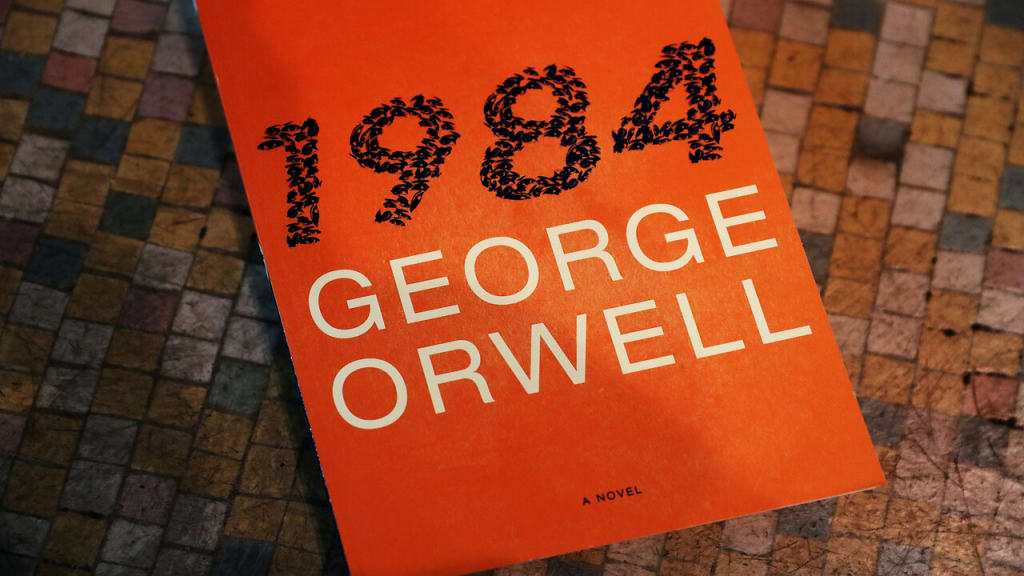Review On The Book "1984" by George Orwell
Dystopian Vision: Exploring Totalitarianism in George Orwell's 1984

Introduction
When it comes to classic literature that has left an indelible mark on both the literary world and the collective consciousness of society, "1984" by George Orwell undoubtedly takes a prominent position. This dystopian novel, published in 1949, has managed to remain relevant and thought-provoking throughout the years. In this review, we will delve into the captivating world Orwell has created and explore the profound themes that continue to resonate with readers today.
The Author's Background
Before delving into the intricacies of "1984," it's important to understand the context in which George Orwell penned this masterpiece. Born as Eric Arthur Blair in 1903, Orwell had a life rich with experiences that would eventually influence his writing. From his time as a British colonial officer in Burma to his time fighting alongside Spanish Republican forces during the Spanish Civil War, Orwell's exposure to different cultures and political ideologies shaped his perspective on the world.
A Dystopian Vision
"1984": A Dark Glimpse into Totalitarianism
The novel is set in a dystopian society ruled by the omnipresent Party led by Big Brother. Orwell paints a bleak picture of a world where individualism and independent thought are crushed under the weight of a totalitarian regime. The Party controls every aspect of its citizens' lives, manipulating language and history to maintain its grip on power. The protagonist, Winston Smith, becomes a symbol of resistance as he battles against the Party's oppressive regime.
Themes Explored
Surveillance and Loss of Privacy
One of the most chilling aspects of "1984" is its portrayal of surveillance. The Party's constant monitoring of its citizens through telescreens and the Thought Police serves as a warning about the erosion of personal privacy in the face of advancing technology. Orwell's depiction of the lack of personal space and autonomy serves as a cautionary tale in our modern age of digital surveillance.
Manipulation of Truth
Orwell coined the term "Newspeak" to describe the Party's method of manipulating language to control thought. In "1984," words are stripped of their original meanings, and historical records are altered to fit the Party's narrative. This exploration of the malleability of truth has profound implications for our understanding of the media, propaganda, and the power of language.
Impact and Relevance
A Timeless Warning
"1984" continues to be relevant today due to its timeless themes and cautionary messages. In a world where information is easily manipulated and privacy is constantly under threat, the novel's warnings about totalitarianism and the loss of individual freedoms hit close to home. The novel's enduring relevance is a testament to Orwell's ability to tap into the universal fears and aspirations of humanity.
Conclusion
In "1984," George Orwell presents readers with a chilling glimpse into a dystopian future that serves as a cautionary tale for our own times. Through its exploration of themes like surveillance, manipulation of truth, and the struggle for individuality, the novel remains a thought-provoking and impactful piece of literature. As we reflect on the world Orwell created, we are reminded of the importance of vigilance in safeguarding our freedoms and preserving the integrity of truth.
FAQs About "1984" by George Orwell
Is "1984" a difficult read?
While the novel's themes are complex, Orwell's writing style is accessible and engaging, making it a compelling read.
What makes "1984" relevant today?
The novel's exploration of surveillance, manipulation, and loss of privacy resonates with contemporary concerns about technology and government control.
Are there any film adaptations of "1984"?
Yes, there have been film adaptations of the novel, which capture its dystopian essence and thought-provoking themes.
Is "1984" suitable for younger readers?
The novel's mature themes and dark subject matter make it more suitable for mature readers and those interested in exploring complex societal issues.
How does "1984" compare to Orwell's other works?
"1984" stands as one of Orwell's most renowned works, showcasing his ability to create a compelling narrative that prompts deep reflection on societal dynamics.
THE END...............
About the Creator
Ashir Hassan
"Hello, I'm Ashir Hassan, a seasoned blog writer from the Pakistan. With a passion for crafting engaging content, I specialize in delivering well-researched blogs that captivate readers.






Comments
There are no comments for this story
Be the first to respond and start the conversation.